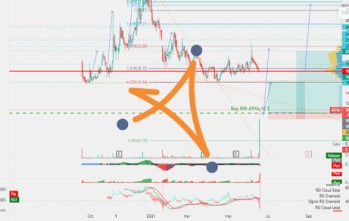Table Of Contents
- What Are Stock Options?
- What Are RSUs?
- RSU vs Stock Options
- 1. Ownership & Voting Rights
- 2. rSU vs stock options And Their Upfront Cost
- 3. Vesting
- 4. rSU vs stock options and Taxation
- 5. rSU vs stock options Risk
- 6. Motivation & Retention
- Tax Implications On Stock Options
- Tax Implications On RSU?s
- Final Takeaway
- What Are Stock Options?
- What Are RSUs?
- RSU vs Stock Options
- 1. Ownership & Voting Rights
- 2. rSU vs stock options And Their Upfront Cost
- 3. Vesting
- 4. rSU vs stock options and Taxation
- 5. rSU vs stock options Risk
- 6. Motivation & Retention
- Tax Implications On Stock Options
- Tax Implications On RSU?s
- Final Takeaway
RSU VS Stock Options: Essential Points Of Difference
RSU vs Stock options differ from each other in the form of vesting. The form of the compensation that an employee receives and how they are taxed. Whenever you consider your expenses, you must consider facts about what factors are beyond your paycheck.
Whenever you opt for any kind of compensation, ensure that it should not be beyond your paycheck. RSU and Stock options are the common forms employers try to compensate their employees.
The simple step is to understand the ins and outs of these holdings. RSU vs Stock options are both forms of the employee’s equity compensation that the employer offers to the employees.
What Are Stock Options?
Stock options are financial instruments that give individuals the right, but not the full control, to buy or sell a specific number of shares of a company’s stock. At a predetermined price, known as the “strike” or “exercise” price, within a particular period. Employees use stock options mostly as a form of compensation. It can also be applicable to investors and traders for various investment and hedging strategies.
What Are RSUs?
RSUs, or Restricted Stock Units, are a form of compensation commonly used by companies to reward employees, particularly in the tech and startup industries. RSUs are a promise to provide employees with a certain number of company shares at a future date. These are typically subject to certain conditions and vesting schedules.
RSU vs Stock Options
There are several points of differences between RSU?s vs Stock options. You need to get through the complete idea of it to make things happen in your way. Seek the help of the best index funds in this regard as well.
| Basis Of Difference | RSUs | Stock Options |
| Exercise Price | None | On the basis of the company?s fair market value, you can exercise the price. |
| Vesting | Awarded on the basis of performance benchmark or vesting schedule | Awarded depending on the vesting schedule only. |
| Payment | Stock | Stock options |
| Taxation | When vested, you have to pay the taxes. | When exercised or sold, you are taxable. |
| Common Uses | Popular with the late stage and ups for the public companies. | It is popular among the early and mid-stage startups. |
Hence, these are some of the common points of difference between RSU vs Stocks. To know more in detail, you can follow the below-mentioned points.
1. Ownership & Voting Rights
With RSUs, employees do not actually own the company’s stock until the RSUs vest and are settled. Therefore, they do not have voting rights, and they do not receive dividends until the RSUs are converted into actual shares.
Stock options give employees the right to purchase company stock at a specified price (the exercise price or strike price). Once exercised, employees become shareholders with voting rights and may receive dividends if the company pays them.
2. rSU vs stock options And Their Upfront Cost
Employees can grant RSUs without any upfront cost. Employees do not need to purchase the shares.
Stock options may have an exercise price that employees must pay to acquire the underlying shares. This exercise price can be less than the current market value of the stock, making options potentially more attractive if the stock price appreciates. You must know the difference between ETF vs Index funds.
3. Vesting
RSUs are subject to a vesting period during which the employee must remain with the company to become eligible for the shares. Once RSUs vest, they are typically settled in shares or cash.
Stock options also have a vesting period, during which they cannot be exercised. However, once options vest, employees have the flexibility to choose when to exercise them within a specified exercise window. It may extend beyond the vesting period.
4. rSU vs stock options and Taxation
When RSUs vest, their value is considered taxable income. Employees pay income tax on the value of the vested RSUs, even if they do not sell the shares immediately. The timing and amount of taxation depend on tax rules in the employee‘s jurisdiction.
Stock options may have tax implications upon exercise and again upon the sale of the acquired shares. The tax treatment can be more complex, and it can depend on whether the options are incentive stock options (ISOs) or non-qualified stock options (NSOs). Seek help from an enhanced recovery company.
5. rSU vs stock options Risk
There is no financial risk associated with RSUs, employees can receive the shares or equivalent value once they vest. The value is based on the company’s stock price at the time of vesting.
Stock options come with a financial risk. If the stock price does not exceed the exercise price, employees may choose not to exercise the options, rendering them worthless.
6. Motivation & Retention
Employees use RSUs as a retention tool, as they encourage employees to stay with the company until the RSUs vest. Employees benefit from any appreciation in the company’s stock price.
Stock options can serve as an incentive for employees to contribute to the company’s growth. They offer the potential for significant gains if the stock price increases.
Tax Implications On Stock Options
The tax implications on stock options are less compared to RSU?s. You do not have to worry about paying the taxes. Only your company needs to worry at the time of paying the taxes. It is the main difference between RSU and Stock options.
Tax Implications On RSU?s
RSU grants the stock other than you purchase the stock. You have to pay the taxes to the government at the time of vesting. Try to understand the reality while you want to make use of the RSU as your stock options. It is another point of difference between RSU?s Vs Stock. You can visit the site of empower.com to get more insight.
Final Takeaway
Hence, these are some of the essential points of difference between RSUs vs Stock options. You cannot make your selection and choices on the wrong end. You need to identify the best opportunity to make things work in your favor.
Your experience and opinions are valuable to us. Try to share your feedback, it will assist us to make the right decisions within a specific time. Without proper and effective planning, things can turn out to be worse for you in all possible manner.
#Disclaimer: The information provided on this blog is for educational and informational purposes only and should not be construed as financial advice. I am not a licensed financial advisor. Any investment decision you make is at your own risk, and you should consult with a qualified financial advisor before making any investment decisions. This site may contain affiliate links, and I may earn a commission at no additional cost to you.
Continue Reading:
- Why Value Stocks Are a Great Long-Term Investment?
- How To Start Investing In Stocks On A Small Budget?
- How Old Do You Have To Be To Buy Stocks? Can A Minor Invest In Stocks?
- What is Walmart’s neighborhood market pharmacy?
- What is an echeck: The Future of Online Payments?
- How to properly write cents on a check without making mistakes











Leave A Comment